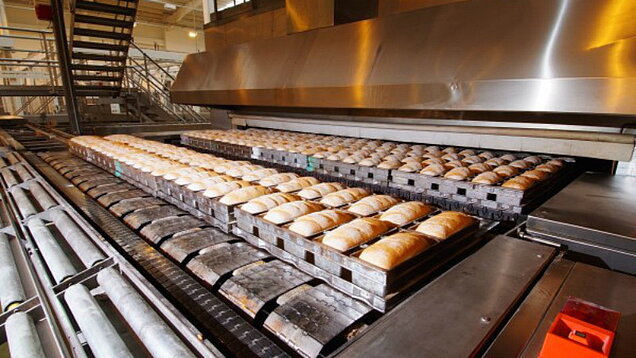
MOULD LASER CLEANING
GLASS MOULD CLEANING
Glass moulds have very specific needs when it comes to cleaning. Some of the most important difficulties when it comes to glass cleaning are:
- There shouldn't be any increase in volume of for example bottles. Because of this the base material cannot be affected.
- Closing edges have to be preserved to make sure no burrs are introduced.
- A lot of small holes can be found in glass moulds to make sure air can get out. Laser cleaning ensures good cleaning of these holes and of course no residues are left behind.
Best solution
500-2000 W machines are often needed in the glass industry, just because speed is the determing factor.
MOULD LASER CLEANING
RUBBER
Speed is the decisive factor when it comes to rubber mould cleaning. For example, cleaning a tire mould (for a passenger car) takes eight hours of machine down-time and the same amount of manual labour time if done in the traditional way (blasting or chemical cleaning). Laser cleaning systems can clean 2m² per hour, a drastical improvement.
A lot of aluminium moulds are used in the rubber industry. Laser cleaning makes sure the base material is not affected by the technology, surpassing sand-blasting.
On top of that, laser cleaning technology is able to clean thicker and sturdier contamination, which is very difficult using the traditional methods.
Best solution
500-2000 W systems
MOULD LASER CLEANING
PLASTIC
Just like with rubber moulds, speed is a crucial factor when it comes to cleaning. Laser cleaning succeeds in reaching this speed without damaging the base material.
A lot of plastic moulds have a specific structure that may not be damaged when cleaning. Traditional cleaning methods like sand-blasting cannot guarantee this preservation, laser cleaning can.
On top of that, a lot of moulds are designed with a high gloss finish to transfer to the final product. Laser cleaning makes sure this high gloss is not affected by the cleaning.
Best solutions
- 20-100 W machines for small moulds
- 500-2000 W machines if high speed is required
MOULD LASER CLEANING
FOOD
For the food industry hygiene is very important. Food has to be processed in a very clean environment following very strict regulations.
To meet these regulations, it is necessary to clean the moulds in an environmentally friendly way. Sand-blasting or the use of chemical solvents is a no-go. Laser cleaning is an excellent solution because it is clean and very easy to integrate in-line.
Best solutions
Both Low Power and High Power systems can be used as a mould cleaning solution in the food industry.
MOULD LASER CLEANING
COMPOSITES
In Aeronautics, laser cleaning is used to clean the wing moulds of airplanes. The structure of the moulds has to be preserved, so sand-blasting is not a good option if you want to clean these giants.
Using chemicals can be very dangerous because the base material might be harmed by the toxic chemicals. Apart from that, the chemical waste would be outrageous. Because of the large surfaces that have to be cleaned, high speeds are demanded.
Best solution
High Power systems will deliver the speed that is demanded.
Indicational Surface Cleaning capacity for each laser power
This are only indicational values for Reference, based on our own experience, each case must be checked specific and results depend on the layers and the underground
| Surface cleaning indicational capacity | layer thickness | 100Watt | 200Watt | 300Watt | 500 Watt |
|---|---|---|---|---|---|
| Oxide Layer | m²/h | m²/h | m²/h | m²/h | m²/h |
| <25µm | 5 | 9 | 12 | 15 | |
| <50µm | 2,5 | 4,5 | 6 | 7,5 | |
| >50µm | 1,5 | 3 | 4 | 5 | |
| Carbon layer | m²/h | m²/h | m²/h | m²/h | m²/h |
| <25µm | 3 | 5 | 8 | 10 | |
| <50µm | 2 | 3 | 4 | 7 | |
| >50µm | 1 | 2 | 2 | 5 |
